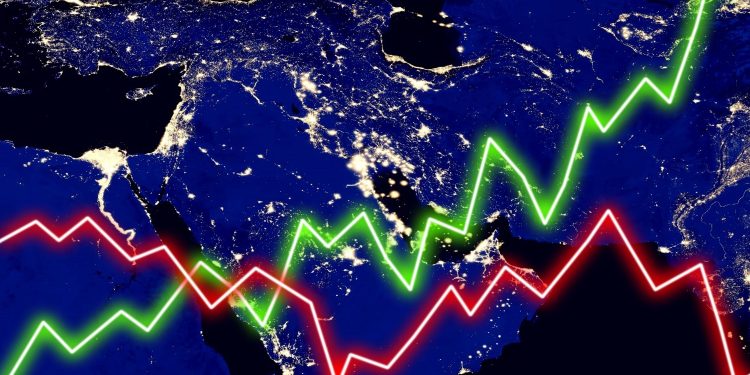The Saudi Arabian Tadawul stock exchange, the largest in the Arab world by market capitalization, is experiencing a burgeoning pipeline of initial public offerings (IPOs). The chairman of the kingdom’s Capital Markets Authority highlighted that there are currently 56 companies of varying sizes poised to go public on Tadawul’s Main Market and Nomu-Parallel trading platform, marking a 30% increase from the previous year.
These insights were shared at the Saudi Capital Market Forum in Riyadh, where it was also noted that the IPO uptrend, which has been consistent for the past three years, signifies Saudi Arabia’s transition towards becoming a net importer of capital. This shift necessitates a substantial enhancement of the nation’s financial infrastructure.
Prospects for continued IPO success in the Gulf Cooperation Council (GCC) region look strong, partly fueled by governmental privatization initiatives. The surge in capital raising by private sector entities, coupled with robust investor interest in new listings, has sustained the momentum of IPOs.
Last year, GCC companies amassed a total of $10.79 billion through IPOs, as reported by various financial data sources. Although there was a noticeable decline in the total value of funds raised compared to the previous year, the number of IPOs held steady, with 46 in the last year nearly matching the 48 from the year before.
The Saudi Exchange led the region with 35 offerings, raising $3.5 billion and accounting for 35% of the total proceeds in 2023. Over the past three years, Tadawul has witnessed over 120 listings across its markets, which have collectively raised more than $100 billion for issuers, as stated by Mohamed Al Rumaih, the exchange’s CEO.
This growth in the capital market has not only propelled economic expansion but has also escalated foreign investment in the kingdom. The number of qualified foreign investors has dramatically increased from 50 in 2017 to 3,700 by the end of last year.
Among the various sectors, the information, communication, and technology (ICT) sector emerged as the top performer in the kingdom last year. However, there is a call for accelerated development in the debt capital market, with aspirations for the private sector’s local outstanding debt issuances to represent 18% of the nation’s GDP by 2030, up from the current 4%.
In a separate development, Saudi Aramco, the world’s leading oil producer, is considering a bond issue this year, potentially extending the maturities to up to 50 years. This move is part of Aramco’s strategy to fine-tune its capital structure. The company last entered the global debt market in 2021 with a $6 billion sukuk issuance. Amidst speculation of a follow-on share sale by Aramco, which could raise about $20 billion according to some reports, the company’s CFO refrained from commenting on the government’s decision regarding the sale of its shares.
Following Aramco’s record-breaking IPO in late 2019, which garnered $25.6 billion and later increased to $29.4 billion with additional share sales, the potential further share offering could significantly bolster the nation’s funds and support its objective to diversify the economy beyond oil.


